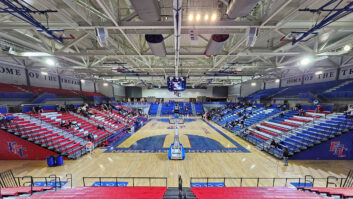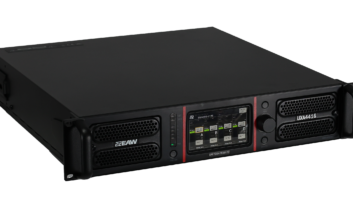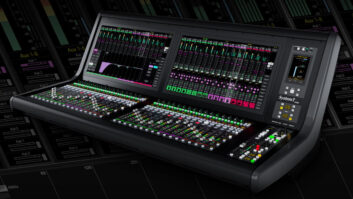Shure Urges Pros to Reject FCC White Space Rules
Shure recently released a statement urging AV professionals to send comments to the FCC in criticism of the proposed white space rules, which are scheduled to be voted on Nov. 4th. According to Shure, the current deadline for sending comments to the FCC on this issue is Monday, Oct. 27th.
Shure recently released a statement urging AV professionals to send comments to the FCC in criticism of the proposed white space rules, which are scheduled to be voted on Nov. 4th. According to Shure, the current deadline for sending comments to the FCC on this issue is Monday, Oct. 27th. In its statement, the company says those who oppose the rules must act immediately by telling the FCC or legislators that the changes are unacceptable.
As many know, the FCC is reorganizing the UHF television to coincide with the analog-to-digital transition. TV stations will therefore occupy a smaller section of the UHF spectrum because digital stations can be spaced closer together without interfering with each other. The result will be unoccupied channels in every market, called white spaces. These white spaces are used by wireless microphones and instrument systems, in-ear monitors, and production intercom system, but as of Feb. 18, 2009, the FCC intends to allow consumer wireless devices, such as cell phones, to access the Internet via the same frequencies currently used by wireless audio equipment.
According to Shure officials, consumer devices can cause catastrophic interference if operated on the same frequency as wireless audio devices, possibly decreasing wireless microphone range to as little as 10 feet. Reportedly, tests have shown that white space devices can interfere with DTV reception as well as cable TV signals.
The FCC plans to set aside eight “protected” TV channels–two in the VHF band and six in the UHF band–for each market, in which unlicensed wireless microphones can operate without interference. White space devices would check an online database to avoid transmitting on the channels that are protected. Shure officials say that the FCC plans to assign only two of these TV channels for unlicensed wireless microphones but won’t reveal where they are in the spectrum. Two TV channels would be enough bandwidth for four to 10 wireless microphones or less, depending on whether other wireless mic users are nearby.
Shure’s statement continues by describing how the FCC proposes the use of spectrum sensing technology with wireless microphones operating outside the protected channels. The company says this would require white space devices to detect DTV stations and wireless audio equipment to avoid transmitting on the frequencies they are using. Reportedly, the FCC’s own tests demonstrated that this technology often fails to detect that a wireless microphone is present, even at short distances. Despite the tests’ results, Shure officials say the FCC plans to allow new devices to rely on spectrum sensing anyway.
The statement concludes by noting that in situations where many wireless audio devices are in use, several open TV channels may be required, so the FCC proposed that users register in an online database that would include the event location and duration. Shure officials see this as a problem, because the FCC has not yet revealed who would have access to the database, which they fear would cause many wireless users to be locked out.










